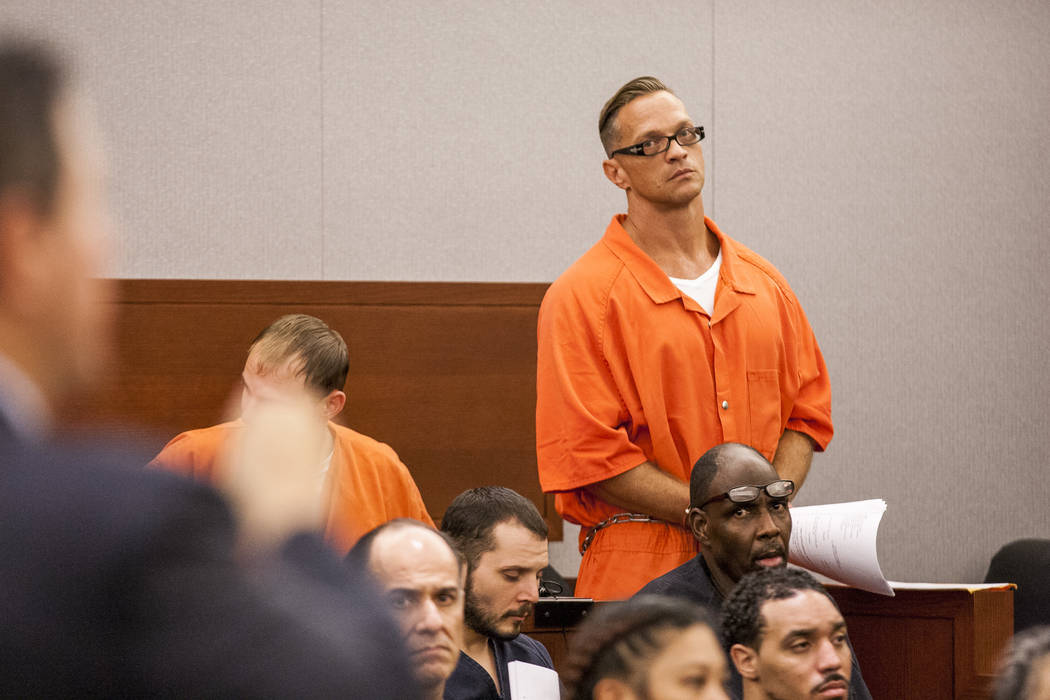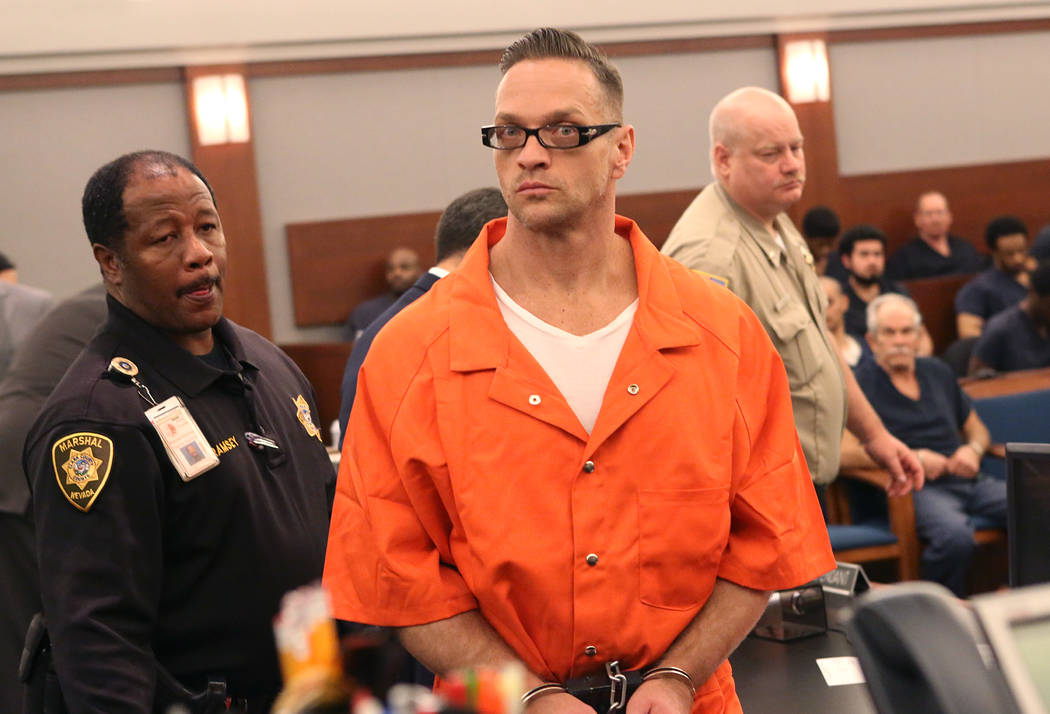ACLU opposes drug cocktail planned for Nevada inmate’s execution
As Scott Dozier pushes his way to Nevada’s execution chamber, legal experts are expressing apprehension about how he will die.
“The state needs to make sure they’re not torturing inmates as they’re executing them,” said Amy Rose, legal director for the American Civil Liberties Union of Nevada, the latest group to request transparency in Dozier’s planned death. “Nevada should not become the next state to botch an execution.”
The ACLU’s concern centers on the lethal drug cocktail that state prison officials said this week they would use on the condemned 46-year-old who has asked that he be put to death.
A day after Dozier’s execution date was extended to Nov. 14 and the drugs were revealed, ACLU officials criticized as untested the combined use of diazapam, a sedative; fentanyl, an opioid; and cisatracurium, a paralytic agent.
“This experimental combination of drugs has never been used for lethal injection in any state, and it must be reviewed by the court to ensure it complies with all state and federal laws,” Tod Story, executive director of the ACLU of Nevada, said in a statement.
Lawyers for Dozier, who has pushed for his own execution, filed court papers this week to ensure that the death penalty is carried out legally.
Under Nevada law, Dozier and his lawyers must know exactly which drugs will be used seven days before the week of his execution.
While Dozier requested that his appeals process cease last year, and has not since wavered in his desire to die, the inmate appears to understand that capital punishment must be carried out legally.
“I feel that theoretically, if the state is killing someone, those things probably should be available to the public,” Dozier told District Judge Jennifer Togliatti, who signed his death warrant. “But I’ve gotten into this recognizing I very well may not know those, and so not knowing those is not going to deter me from my course of action.”
‘Chemical curtain’
Rose likened cisatracurium to a “chemical curtain” that would paralyze Dozier while the lethal cocktail takes hold and said it could mask signs of pain or suffering. The Eighth Amendment to the U.S. Constitution prohibits cruel and unusual punishment.
“Our goal is to make sure there not only is transparency in the process but that it’s carried out in a constitutional manner,” Rose said. “We also have an interest in protecting all inmates who are on death row. Our global concern is the state acts in a constituional manner at all points in time.”
While the state has not executed an inmate since 2006, corrections officials have said they can carry out a fatal injection.
Dozier was sent to Nevada’s death row nearly a decade ago for his second killing. A Clark County jury convicted him in September 2007 of killing 22-year-old Jeremiah Miller at the now-closed La Concha Motel and robbing him of $12,000 that Miller had brought from Phoenix to purchase materials to make methamphetamine.
In 2005, Dozier was convicted in Arizona of second-degree murder and given a 22-year prison sentence. In that case, prosecutors said he shot and killed a 27-year-old man, stuffed his body into a plastic container and dumped it in the desert near Phoenix.
Botched executions
Lethal injection results in the highest rate of so-called “botched executions” in the United States at more than 7 percent, according to the Death Penalty Information Center.
The most recent occurred in December, when Robert Bert Smith Jr. “heaved, gasped and coughed while struggling for breath for 13 minutes after the letheal drugs were administered” during an Alabama state-sanctioned killing, according to the center.
Nevada’s 1998 execution of Roderick Abeyta also made the list. In that case, an execution team took 25 minutes to find a suitable vein for injecting the lethal drugs, the center reported.
Clark County Deputy Public Defender Scott Coffee, who has studied death penalty cases for decades and defended those facing capital punishment, said the use of an untested drug could lead to “ghastly consequences.”
“You don’t know because nobody’s ever used it,” he said. “Anything that’s untested is subject to litigation. That’s the problem with this whole experimentation protocol.”
The Nevada attorney general’s office referred all questions about the execution process to the state’s Department of Corrections, which has yet to respond to requests for further information about how Dozier’s execution would be carried out.
Jennifer Moreno, a death penalty expert with the University of California at Berkeley School of Law, said several questions should be answered before Dozier is executed, including how the state plans to administer the drugs.
“We don’t really know any more information than the three drugs they listed,” she said.
Contact David Ferrara at dferrara@reviewjournal.com or 702-380-1039. Follow @randompoker on Twitter.
Dozier Execution Order by Anonymous ZrUWk97 on Scribd
Lethal drug cocktail
Dr. Jame Marx, a Las Vegas pain management specialist, said the combination of diazapam, fentanyl and cisatracurium must be given in "super doses" to carry out an execution. Still, he said, it is possible that even if high concentrations of the drugs are administered, an individual "experiencing high anxiety" could resist the normal actions of the drugs.
He added that each drug being proposed has been ineffective in the past when administered by doctors during regular medical procedures because of patients' high anxiety.
"Certain people have been resistant to what the drugs are supposed to do," he said.
That could be problematic for an execution, Marx said.
"Because they haven't used the drugs in combination before, they don't know what the correct dose would be," he said. "You could end up with a botched execution."
Under normal circumstances, he said, diazapam will sedate a patient and create unconsciousness; fentanyl, a potent opiate pain medication, reduces consciousness and takes away respiratory drives; and cisatracurium relaxes muscles during surgery.
"In large doses cisatracurium causes paralysis, and a patient would normally stop breathing," Marx said.
Paul Harasim


















